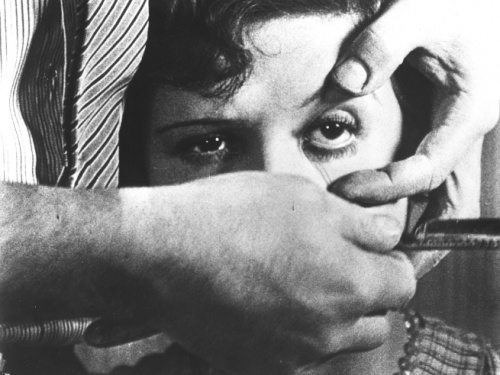Abbas Kiarostami: Deconstructing Cinema
Following the death of renowned Iranian filmmaker Abbas Kiarostami, ICA Cinema & Film Programme Manager Nico Marzano pays tribute to the director and selects his three favourite Kiarostami films. We celebrate Abbas Kiarostami with a special screening of Close-Up on 10 July.
It was in the 90s that films by Iranian Abbas Kiarostami began to circulate at festivals around Europe. The feeling of revelation and admiration for his existentialism, for his formally rigorous yet poetic cinematic language, came to us even before we had fully grasped the magic of his works. Kiarostami was quickly welcomed as the new world cinema maestro on a par with other great cinematic poets of his time: Kieslowski, Herzog, Wong Kar-Wai, Zhang Yimou, to name just a few.
From the very beginning of his career, Kiarostami’s cinema created energy and joy for cinephiles, who realised they were watching life-changing works, discovering a great artist who was both deconstructing and advancing traditional cinematic forms.
"Kiarostami was one of the very first filmmakers to introduce me to that wonderful cinematic dimension where documentary and fiction meet to defy established cinematic languages."
Kiarostami's cinema has always been the antithesis of the spectacular rhetoric of Hollywood films: a cinema that reaches out for the real essence of human beings and manages to constantly generate new patterns of investigation.
Thanks to Abbas Kiarostami, I discovered other superb Iranian filmmakers such as Mohsen Makhmalbaf (at the ICA from 12 August), Amir Naderi and Jafar Panahi.
He is a man to whom I owe pretty much everything I love about cinema. He was one of the very first filmmakers to introduce me to that wonderful cinematic dimension where documentary and fiction meet to defy established mainstream cinematic languages and create something poetic and politically challenging.
These are my three favourite Abbas Kiarostami films, in chronological order:
Close Up (1990)
Posing as the famous Iranian director Mohsen Makhmalbaf, a poor unemployed man deceived a rich bourgeois family. A few weeks away from the actual trial, Kiarostami reconstructed and filmed the story with its real protagonists.
"A plea for the right to create fiction and imagine onself as somebody else."
Kiarostami's depiction of the trial for fraud becomes a plea for the right to create fiction and to imagine onself as somebody else. The film was soon celebrated as a piece of cinema where documentary and fiction blend to make you realise how fiction often feels more real than reality and vice versa.
The Wind Will Carry Us (1999)
A director comes from Tehran to venture to a remote village of Iranian Kurdistan; the intent is to film an ancient funeral rite. The Wind Will Carry Us is a film that becomes an reflection on life through the eyes of the villagers. It is undoubtedly one of Kiarostami greatest films.
Ten (2002)
Abbas Kiarostami's twelfth feature film, Ten re-enacts the story of six characters while they are in conversation with the taxi driver. Ten gifts us with a stunning, magnetic performance by Iranian artist and filmmaker Mania Akbari. It is a film entirely shot on digital video using two cameras, one focused on the driver, the other on the passenger and the story is told in ten sequences over a 48-hour period. Ten is another majestic example of documentary and fiction coming together to defy cinematic boundaries. Echoes of Ten can be traced in recent Golden Bear’s winner Jafar Panahi's Taxi Tehran (2015). ■
We remember Abbas Kiarostami with a special screening of Close-Up on 10 July, introduced by The Guardian Iran correspondent Saeed Kamali Dehghan.
We also screen a special focus season at the end of July, including screenings of The Wind Will Carry Us (27 July), Ten (30 July) and ABC Africa (31 July). A special panel discussion led by artist filmmakers and main protagonist Mania Akbari, follows the screening of Ten.
This article is posted in: Articles, Blog, Events, Film
Tagged with: Abbas Kiarostami, Ten, Close-up, The Wind Will Carry Us, Mani Akbari, Nico Marzano, Iran, Iranian Cinema









